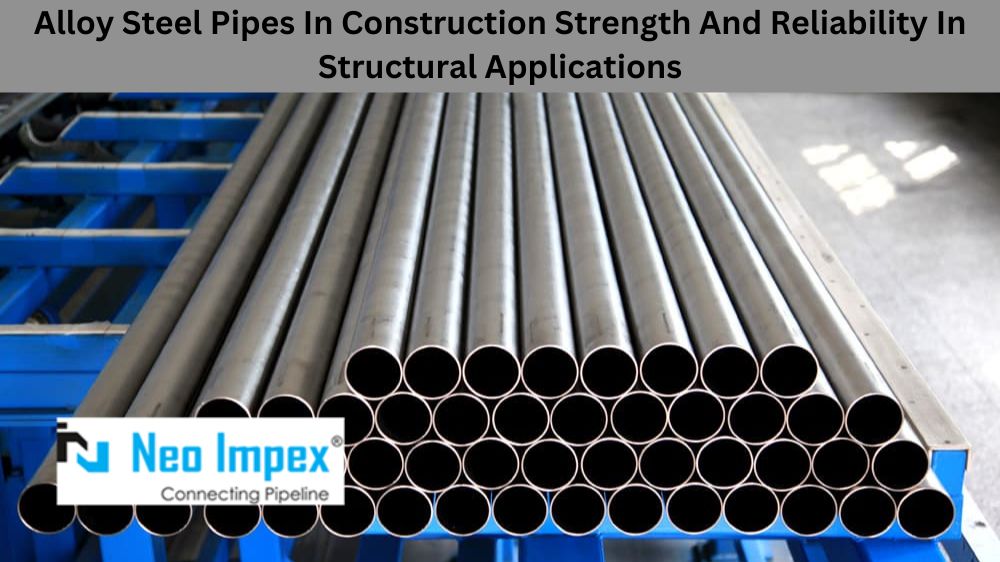One of the most important considerations when building structures is the materials used. Alloy steel pipes are among the materials commonly used in construction due to their strength and reliability. These pipes are known for their superior performance in structural applications, making them a popular choice for designers and contractors alike. This blog looks closely at alloy steel pipes and their benefits, particularly in construction.
What Are Alloy Steel Pipes?
Alloy steel pipes are highly specialized and popular in the industrial world. They are made from a combination of carbon and iron and other elements such as chromium, molybdenum, and nickel. This composition gives them exceptional strength, durability, and resistance to corrosion. These pipes have various applications ranging from automotive to construction industries due to their ability to withstand high temperatures and pressures. Also, these steel pipes offer cost-effective solutions compared to other materials like stainless steel or carbon steel. With their superior properties and versatility, it’s not surprising that they are widely used in different industries worldwide.
Durability And Strength
One of the main advantages of alloy steel pipes is their durability and strength, making them suitable for structural applications. These pipes can withstand high pressure and are also resistant to corrosion and wear and tear. As a result, they have a long lifespan, making them a cost-effective solution for building structures. The high strength of alloy steel pipes also allows for the construction of lighter structures, reducing costs and improving energy efficiency.
Versatility
Alloy steel pipes are also versatile, making them ideal for various applications. They can be used in commercial and industrial buildings, as well as in residential properties. They are used in water supply systems, gas pipelines, and HVAC systems. The versatility of these pipes means contractors have many options when designing and building structures. These pipes can be easily fabricated, which allows for greater flexibility in terms of the shape and size of the structures.
Easy To Install
Another advantage of alloy steel pipes is that they are easy to install. The pipes can be prefabricated, meaning they can be constructed off-site and transported to the construction site. This can reduce construction time and costs and minimize disruptions to the surrounding environment. The ease of installation also makes them a popular choice for retrofitting and renovation projects, as they can be easily installed in existing structures.
Environmental Sustainability
Alloy steel pipes are also an environmentally sustainable choice for construction. They are made from recycled materials and can be recycled once they end their lifespan. They also have a long lifespan, so they do not need to be replaced frequently, reducing the need for new materials. Using these alloy pipes in construction can significantly reduce the carbon footprint of building projects, making them a more sustainable option for the environment.
Cost-Effective
Finally, alloy steel pipes are a cost-effective choice for construction. These pipes’ durability and long lifespan mean that they can save money in the long run, as they do not need to be replaced frequently. The versatility and ease of installation of alloy steel pipes also help reduce construction time and costs, enhancing their cost-effectiveness. In addition, they can help reduce energy costs, allowing for lighter structures with improved energy efficiency.
Conclusion:
Alloy steel pipes are a popular choice for construction due to their strength, durability, versatility, easy installation, environmental sustainability, and cost-effectiveness. As a building material, these pipes can provide superior performance in structural applications, making them a reliable choice for designers and contractors. If you are planning a construction project, consider that using alloy steel pipes can provide many benefits, including reduced costs, improved energy efficiency, and a more sustainable environmental option.


